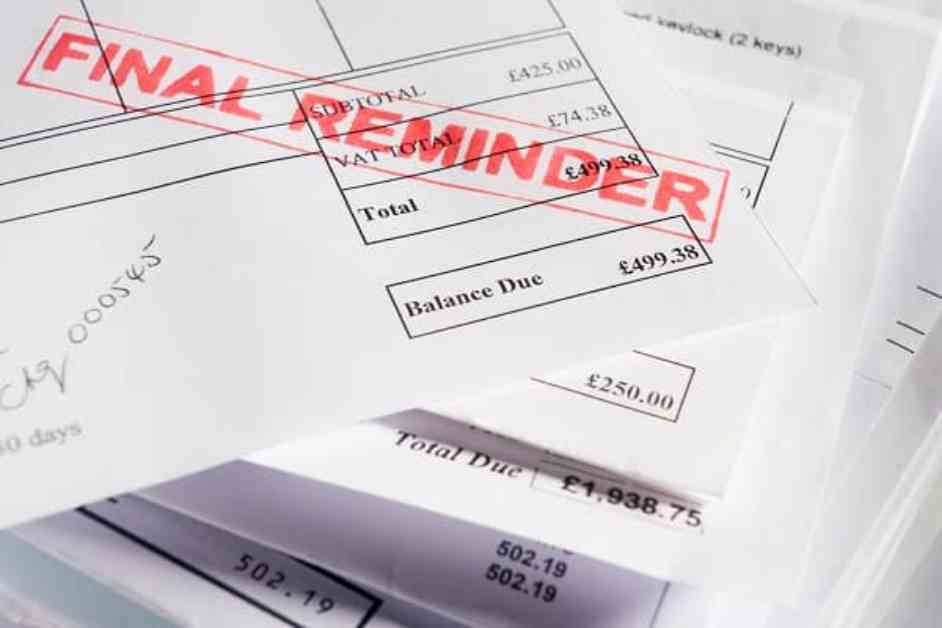Wage garnishment is a harsh reality for many hardworking individuals who are struggling to make ends meet. Having a portion of your paycheck taken away each month can be incredibly frustrating and overwhelming. However, there are legal avenues that can potentially help you stop or reduce wage garnishment. Here are five effective tips to protect your income and prevent wage garnishment:
Understand the Reason Behind Wage Garnishment:
The first step in addressing wage garnishment is understanding why it is happening. Wage garnishment typically occurs when a court orders your employer to withhold a portion of your paycheck to pay off a debt. Common reasons for wage garnishment include unpaid debts such as credit card debt, medical bills, or personal loans that have gone unpaid for an extended period. Additionally, failure to keep up with child support or alimony payments, unpaid taxes owed to the IRS or state tax authorities, and defaulting on federal student loans can also lead to wage garnishment.
Once you understand why your wages are being garnished, you can better determine which strategy to use to stop or reduce the garnishment.
Negotiate Directly with Creditors:
One of the most effective ways to stop wage garnishment is to negotiate directly with your creditors before or after the garnishment process begins. Many creditors are willing to work out a repayment plan rather than go through the legal process of garnishing your wages. When negotiating with your creditors, consider the following steps:
Reach out to your creditor and explain your financial situation, emphasizing the financial hardship caused by wage garnishment.
Propose an alternative repayment plan that fits within your budget.
Offer a lump sum settlement if possible, in exchange for stopping the garnishment.
Get the agreement in writing to protect yourself in case of any issues later on.
Seek Legal Advice:
If your wages are being garnished or you have received a notice of garnishment, seeking legal advice is a wise decision. An experienced attorney can review your case, explain your rights, and help you explore options for stopping or reducing the garnishment. Depending on the laws in your state, you may be able to file an objection to the wage garnishment by proving that it is causing significant financial hardship. Certain types of income, such as Social Security benefits, disability payments, and veterans’ benefits, are exempt from garnishment. If you believe your wages include exempt income, you can claim these exemptions to prevent garnishment. Finally, if the creditor did not follow proper legal procedures when obtaining the garnishment order, you may be able to challenge the garnishment in court with the help of your attorney.
File for Bankruptcy:
Filing for bankruptcy is a serious decision, but in some cases, it may be the best way to stop wage garnishment and get a fresh start. Bankruptcy can automatically halt wage garnishment through a legal process called the “automatic stay.” There are two types of bankruptcy that may apply:
Chapter 7 bankruptcy: If you qualify for Chapter 7 bankruptcy, many of your debts may be discharged, stopping wage garnishment for debts like credit cards, medical bills, and personal loans.
Chapter 13 bankruptcy: In Chapter 13 bankruptcy, you create a repayment plan to pay off your debts over a period of three to five years. While your wages may still be garnished to make these payments, the garnishment amount may be reduced to fit within your repayment plan.
Settle Debts Before Garnishment Begins:
If you have fallen behind on payments and are at risk of wage garnishment, taking action before the garnishment process begins can save you a lot of trouble. Once a creditor has obtained a garnishment order, it becomes more challenging to negotiate or settle the debt. If you have received a notice that your creditor is suing you, do not ignore it. Contact the creditor promptly to discuss settlement options or a repayment plan. If you have been sued, attend any court hearings related to the case to present your side and potentially avoid garnishment by reaching an agreement with the creditor.
Understanding State Laws on Wage Garnishment:
Different states have varying laws regarding wage garnishment, including limits on how much of your paycheck can be garnished and what types of income are protected. Some states offer more generous exemptions than federal law, which could help protect more of your wages. Research the wage garnishment laws in your state or consult with your attorney about any state-specific protections that may apply to your situation. Knowing your rights under state law can help you navigate the garnishment process and potentially stop or reduce the amount being taken from your paycheck.
In conclusion, wage garnishment can be a daunting experience, but there are steps you can take to protect your income and prevent or stop wage garnishment. By understanding the reasons behind wage garnishment, negotiating with creditors, seeking legal advice, considering bankruptcy, settling debts before garnishment begins, and knowing state laws on wage garnishment, you can take proactive measures to safeguard your hard-earned income. Remember that you have rights and options when facing wage garnishment, and seeking professional assistance can help you navigate this challenging situation effectively.

